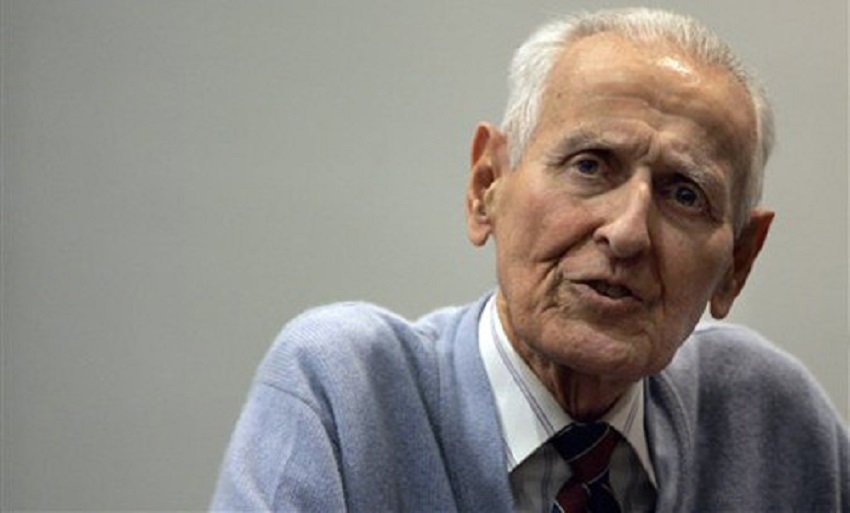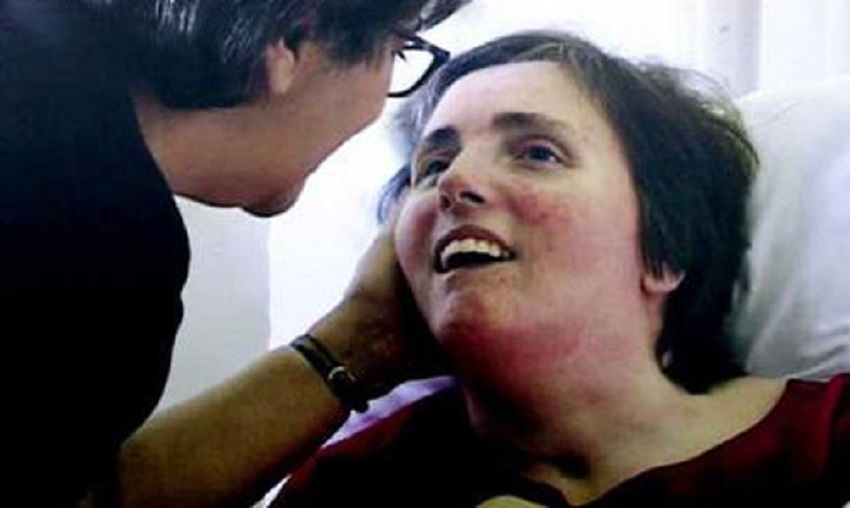Experience in the USA

The USA's experience with euthanasia and assisted suicide
Jack Kevorkian : Euthanasia practitioner
Jack Kevorkian was a controversial American pathologist. He is most noted for publicly campaigning for euthanasia and physician-assisted suicide. He claims to have assisted at least 130 patients to that end. Between 1999 and 2007 served eight years of a 10-25 year prison sentence for second-degree murder. He was released on 1st June 2007, in parole, due to his failing health.

On the November 23, 1998 broadcast of 60 Minutes, Kevorkian allowed the airing of a videotape he had made on September 17, 1998, which depicted the voluntary euthanasia of Thomas Youk, 52, an adult male with full decisional capacity who was in the final stages of ALS. After Youk provided his fully-informed consent on September 17, 1998, Kevorkian himself administered a lethal injection. This was novel, as all of his earlier clients had reportedly completed the process themselves. During the videotape, Kevorkian dared the authorities to try to convict him or stop him from carrying out assisted suicides. This incited the district attorney to bring murder charges against Kevorkian, claiming he had single-handedly caused the death.
On March 26, 1999, Kevorkian was charged with second-degree homicide and the delivery of a controlled substance (administering a lethal injection to Thomas Youk). Kevorkian's license to practice medicine had been revoked eight years previously; thus he was not legally allowed to possess the controlled substance. The Michigan jury found Kevorkian guilty of second-degree homicide.
Earlier Kevorkian murder examples
Kevorkian describes himself as an "obitiatrist" and has advocated everything from involuntary medical experimentation on death-row inmates to chains of non-profit suicide clinics. His motto is "A rational policy of planned death."
Janet Adkins' Minister Supports Her Suicide, and Judge Restricts Kevorkian on Use of Suicide Machine. The Oregonian, June 9, 1990
After the Adkins debacle, Kevorkian lost his license when the Michigan Board of Medicine voted 8-0 to suspend it. However, he vowed to keep killing people despite this loss. He was true to his word. The following year, he assisted in the suicides of two non-terminal patients, Sherry Miller, 43, who was suffering from multiple sclerosis, and Marjorie Wantz, 58, who was afflicted with pelvic disease.
Jeff Holyfield. The Oregonian, November 21, 1991
After Kevorkian killed Susan Williams on May 15, 1992, Hemlock of Michigan President Janet Good announced that "Hemlock has prospered and grown because of him." And commentator Harry Schwartz dared to characterise Kevorkian's work as "saintly," and compared him to Mother Teresa, neglecting to mention that the latter saves lives while the former ends them.
Commentator Harry Schwartz. Suicide Is a Basic Right. USA Today, May 20, 1992
In addition to these four assisted suicides, Kevorkian also advised a cancer-stricken Los Angeles dentist by phone how to rig a machine that would deliver sodium pentothal and potassium chloride into his veins. Dr. Gary Sloan took 20 minutes to die in July 1990, 14 minutes longer than Kevorkian said it would.
Associated Press. Journalist Reveals Long-Distance Suicide. The Oregonian, February 13, 1992
Nancy Cruzan
On January 11, 1982, 25-year old Nancy Cruzan was driving alone on an icy road, lost control of her vehicle, and was seriously injured in the resulting accident. She never regained consciousness and became one of the approximately 10,000 Americans living in a persistent comatose state. Contrary to persistent media lies, she was not in a "persistent vegetative state;" her medical status was "severely handicapped." She required no life support machinery other than a feeding tube implanted in her stomach in early 1982.
Nancy's parents petitioned a lower court to order the Missouri Rehabilitation Centre at Mount Vernon to allow their daughter to die. This court granted the petition, but the Missouri Supreme Court overturned the lower court decision, and, on appeal, the case Cruzan v. Director of Missouri Department of Health became the first to directly address the question of euthanasia at the United States Supreme Court level.
The United States Supreme Court narrowly averted making this case the euthanasiasts Roe v. Wade by denying that the so-called "right to die" is unfettered and absolute. The justices ruled that the States may require "clear and convincing" evidence that a comatose person actually wished to die before they lost their ability to decide their fates for themselves.
The Court essentially held that the States do not have to buckle under to family member's demands when a patient's wishes cannot be concretely proven. However, the ruling indicated that there is a Constitutional right to refuse tube feeding and other life-sustaining measures when patients make their wishes clearly known before they become incompetent.
So a determined Joe and Joyce Cruzan trudged back to the Missouri courts, and rounded up a string of Nancy's co-workers who were willing to testify that she would never want to live "like a vegetable." Nobody bothered to explain how her co-workers could all remember such a statement so clearly after more than eight years, or why a perfectly healthy 25-year old Nancy Cruzan would even make such statements before her car accident.
Nancy did not enjoy any kind of representation in the State court; nobody testified for her, because all of those who wanted her to live were ruled automatic non-parties to the litigation by the judge. The outcome of the one-sided hearing was a foregone conclusion.
So Nancy was sentenced to death. Her feeding tube was removed on December 14, 1990 at the Missouri Rehabilitation Centre in Mount Vernon, Missouri.
Terri Schiavo Schindler
Terri Schindler Schiavo collapsed at home in the early morning hours of February 25, 1990. She was 26 years and 3 months old.Paramedics responded to the scene, and Terri was admitted to Northside HospitalSt. Petersburg.
Initial tests ruled out a heart attack or drug involvement. No diagnosis was made as to the underlying cause of her collapse, but the medical records indicate a discharge diagnosis of hypoxic encephalopathy – brain injury caused by oxygenation starvation to the brain. She was on a ventilator for the first few weeks but ultimately was taken off mechanical life support and has been breathing on her own since this time.

In June of 1990, Michael Schiavo, Terri's husband, was appointed her plenary guardian by the courts. This happened without Terri's immediately family ever being notified. Schiavo was made both the guardian of the person and of her property. in
Also in 1990, Michael took Terri to California for experimental brain surgery. He did so without prior court approval, required by Florida's guardianship statutes. A thalamac stimulator was provided to Terri and she was soon transferred to a rehabilitation facility in Florida.
In 1991, the rehabilitation center recorded notes indicating Terri was speaking during physical therapy sessions, saying things such as "No", "Stop" and "Mommy."
In July of that year, Terri was transferred to Sable Palms Nursing Facility in Largo, Fl. For a short time following, she was provided physical therapy. This was all stopped in 1991 and was the last documented therapy ever provided to Terri.
In 1992, Michael Schiavo initiated a medical malpractice suit against Terri's doctors, a general practitioner and a gynolocologist, claiming that she may have suffered from an eating disorder which they failed to detect. At trial, the Chief of Rehabilitation from Bayfront Medical Center and a second rehabilitation specialist both testified that Terri could expect a normal life span and would require extensive care throughout her life.
Based on that and other evidence, the jury awarded Michael Schiavo $600,000 for loss of spousal consortium and over $1.5 million to Terri. Of this, $780,000 was placed in trust to provide for Terri's future healthcare and therapeutic needs.
On February 14, 1993, Michael Schiavo and Terri's parents had a disagreement over the course of her care and the use of her trust to provide therapy. Terri's parents urged Michael Schiavo to begin therapy for Terri once again. He declined. Schiavo discontinued any contact with Terri's family and took steps to reduce their access to her.
In August of that same year, Michael Schiavo's guardianship was challenged in the courts by Terri's family after he denied antibiotic treatment for a urinary tract infection. He testified at the time that he knew doing so would cause her death and he stated, under oath, that he would not attempt such an action again because "there's some law out there that says I can't."
In 1995, Michael Schiavo took up residence with a romantic interest. He refused to dissolve his marriage to Terri and the couple has since had two children.
In 1997, Michael Schiavo sought out the services of attorney George Felos, a right-to-die litigator.
In May of 1998, Felos filed a Petition to Withdraw Life Support. The court appointed a Guardian ad Litem to investigate the merits of this petition and he reported to the court that the petition should be denied, based on conflicts of interest by Michael Schiavo. Attorney Felos objected on claims of bias and the court dismissed the Guardian ad Litem without ever appointing a successor.
In January of 2000, the Petition to Withdraw Life Support was heard by Judge George W. Greer in Pinellas-Pasco's Sixth Judicial Circuit. As support for his petition, Michael Schiavo testified that Terri told him in the mid-1980s that she would not want life support after the couple had watched a movie depicting a patient on a ventilator. Schiavo's brother and sister-in-law also testified that Terri had made statements to them regarding mechanical life support. Judge Greer found this testimony to be clear and convincing evidence that Terri Schiavo would deny herself the provision of a gastric feeding tube in the event of a profound disability and ordered that her tube be removed.
Terri was admitted to the Hospice of the Florida Suncoast shortly after the conclusion of the 2000 trial. Records on file with Florida's Division of Corporations show that attorney George Felos acted as the Hospice's Chairman of the Board at that time and up until his resignation in 2002.
Later that year, Terri's family appealed the February 11, 2000 order and the Second District Court of Appeals affirmed Greer's ruling. The matter was appealed to the Florida Supreme Court, who declined to hear the case, and to the Supreme Court of the United States, who also declined to hear the case.
On April 21, 2001, Terri Schiavo's feeding tube was removed.
After Terri had endured more than sixty hours without nutrition and hydration, Judge Frank Quesada issued an injunction to resume her nourishment. Based on evidence from a former romantic interest of Michael Schiavo's that he stated he had never discussed Terri's wishes, Judge Quesada determined that Terri's case should be reheard.
In October of 2001, Terri's family filed a Motion for Relief from Judgment before Judge George W. Greer and provided new evidence that Terri's neurological condition was better than previously speculated and offered numerous affidavits from medical professionals in support of their claim. Judge Greer denied their motion without a hearing and without review of the supporting affidavits. Upon appeal, the case was remanded back to Judge Greer for a medical evidentiary hearing.
In October of 2002, Greer's court held the medical evidentiary trial. Six physicians testified. Of those, one was a noted right-to-die advocate and another was a business partner to Michael Schiavo's attorney, George Felos. Videotapes of Terri were admitted into evidence and, though Florida's statutes state that persistent vegetative state is the total absence of awareness and ability to communicate, Judge Greer – instead – based his ruling on the consistency of Terri's reactions. He found her to be in a persistent vegetative state and reaffirmed his earlier ruling that she would want to die. The Second District Court of Appeals affirmed Greer's ruling and mandated that he set a date for the removal of Terri's feeding tube.
Judge Greer ordered that Terri's enteral nourishment be removed on October 15, 2003. At that time, hundreds of people had gathered outside the Hospice where Terri resided. At least 180,000 signed a petition to Governor Jeb Bush of Florida to invoke Florida's Adult Protective Custody statutes based on allegations of neglect and thousands more maintained a grassroots network of communication throughout the United States and abroad.
On October 20, 2003, a special session of the Florida Legislature was called and the House and Senate both considered and passed a bill into law, known as "Terri's Law." This new law afforded Governor Bush the authority to order to reinstatement of Terri's nutrition and hydration and the appointment of an independent Guardian ad Litem.
Attorney Felos immediately filed suit, and Michael Schiavo's behalf, challenging the constitutionality of the new law. On May 5, 2004 Judge Baird of the 6th Circuit court ruled that 'Terri's Law' was unconstitutional. On September 23, 2004 the Florida Supreme Court affirmed Judge Baird's ruling that 'Terri's Law' is unconstitutional. The US Supreme Court refused review of the appeal.
In January of 2005, the Supreme Court of the United States refuses to hear Terri's case.
On February 25, 2005, Judge George W. Greer sets feeding tube removal date for March 18, 2005. He further orders that Terri may not receive hydration or nutrition by mouth.
On March 18, 2005, Terri Schiavo's gastric feeding tube is removed at approximately 1.40pm ET.
During the late night of March 20 and through March 21, 2005, Congress enacts Terri's Law II, authorizing Terri's parents to seek federal court review of whether Terri's federal rights have been protected. The couple file a request for an emergency injunction in the U.S. District Court for the Middle Distinct in Tampa, Florida that same day.
March 22, 2005 US District Court Judge James Whittemore denies Robert and Mary Schindler's request to have Terri's feeding tube reinserted, pending the court's acceptance of a Writ of Habeas Corpus.
On March 24, 2005, the Supreme Court of the United States again declined review of the case and declines to grant certiorari. Judge Greer issues an injunction denying the Florida State government's right to have the Florida Department of Children & Families take over Schiavo's care.
On March 31, at approximately 9:05 am, after almost 14 days without nutrition or hydration, Terri Schindler Schiavo dies from severe dehydration.
Taken from www.terrisfight.org
Exploitation of the vulnerable: Mryna Lebov
On July 4, 1995, Myrna Lebov, age 52, committed suicide in her Manhattan apartment. The case generated national headlines when her husband, George Delury, announced that he had assisted Lebov's suicide at her request because she was suffering the debilitations of progressive multiple sclerosis.
Delury became an instant celebrity. He was acclaimed as a dedicated husband willing to risk jail to help his beloved wife achieve her desired end. The assisted-suicide movement set up a defense fund and renewed calls for legalization. Delury made numerous television appearances and was invited to speak to a convention of the American Psychiatric Association. He signed a deal for a book, later published under the title But What If She Wants to Die? Delury soon copped a plea to attempted manslaughter and served a few months in jail.
Terminally ill woman in Californoa says her insurance coverage won't pay her treatment, but will pay for her to kill herself
A terminally ill California woman says her insurance company denied her coverage for chemotherapy treatment but offered to pay for her to kill herself, shortly after California passed a law permitting physician-assisted suicide.
Stephanie Packer, a wife and mother of four who was diagnosed with a terminal form of scleroderma, said her insurance company initially indicated it would pay for her to switch to a different chemotherapy drug at the recommendation of her doctors.
“For a while, five months or so, we’ve been trying to get me on a different chemotherapy drug for the infusions, because my doctor felt that it would be less toxic than some of the other drugs that we were going to be using,” Ms. Packer said in a video distributed by The Center for Bioethics and Culture Network on Monday.
